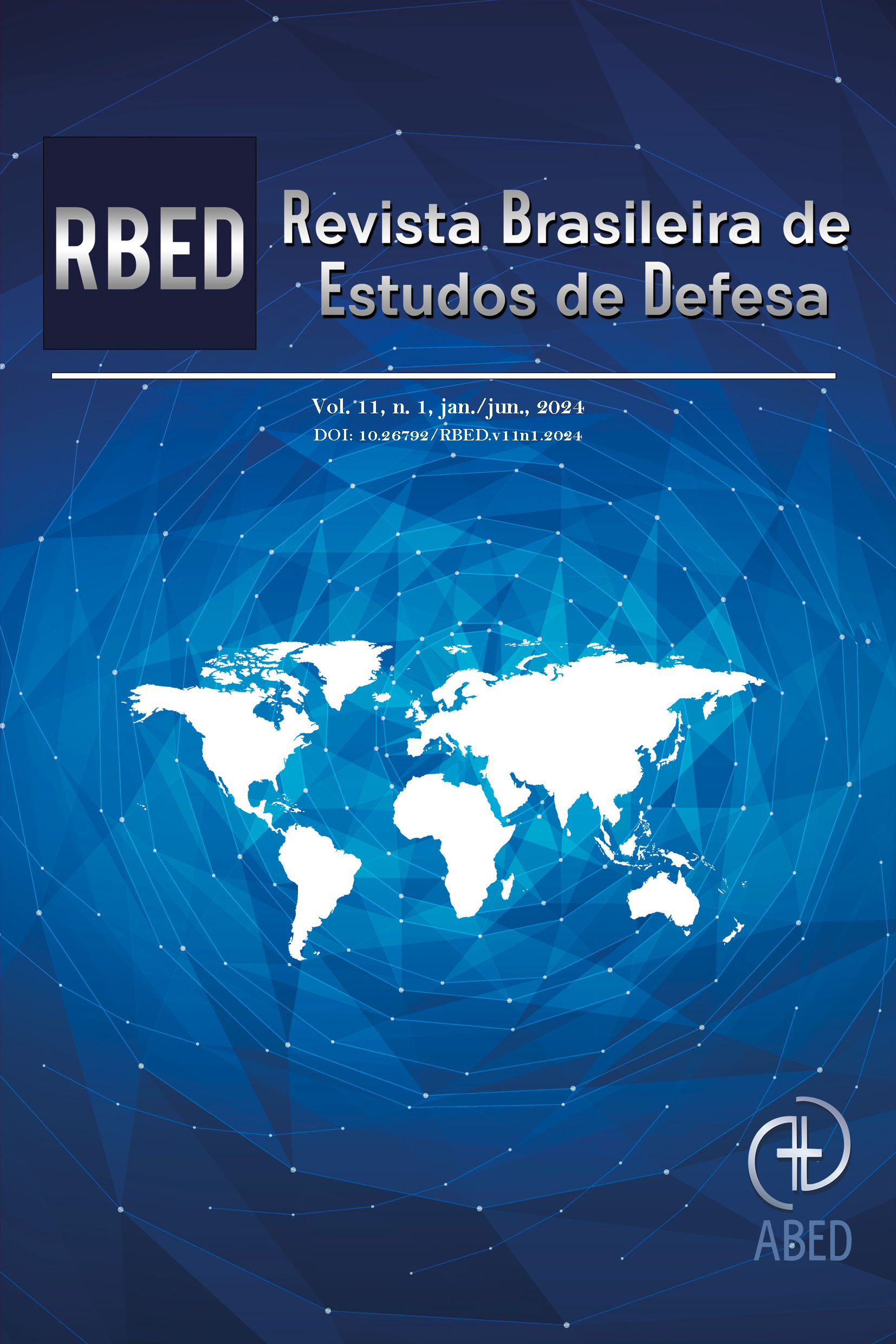Cyberdefense and software power:
an exploratory analysis of China
DOI:
https://doi.org/10.26792/rbed.v11i1.75323Abstract
How does software power help to understand cyber-defense and power projection
in China? Advances in technology and the Internet have added to International
Relations a new space for disputes and analysis, Cyberspace, in which States have
begun to devise strategies for defense and expansion of power that seem to differ from the more traditional ones, which involve coercion through force (hard
power) or persuasion (soft power). There is also a third form, which is expressed
through programs, systems, applications and information in those physical and
virtual structures that make up Cyberspace, Software Power. In this sense, the
general objective of this work is to understand whether this form of power is
used in the traditional way of proliferation, that is, as a tool to manifest state
interests and achieve its sovereign ends. To this end, we used a qualitative methodology, through an exploratory analysis of documents on the Chinese case, with
the structure consisting of a case study. The results show that there is no clear
strategy in Chinese foreign policy to impose or convince other countries of these
programs, applications, systems and information from China. On the other hand,
internal interests, concerns and issues are identified for Chinese defense and its
shielding from external influences in Cyberspace.
Downloads
Downloads
Published
How to Cite
Issue
Section
License
Copyright (c) 2024 Bruno Moser Nunes, Thays Felipe David de Oliveira, Renato Victor Lira Brito

This work is licensed under a Creative Commons Attribution 4.0 International License.
Autores que publicam nesta revista concordam com os seguintes termos:1) Autores mantêm os direitos autorais e concedem à revista o direito de primeira publicação, com o trabalho simultaneamente licenciado sob a Licença Creative Commons Attribution que permite o compartilhamento do trabalho com reconhecimento da autoria e publicação inicial nesta revista.
2) Autores têm autorização para assumir contratos adicionais separadamente, para distribuição não-exclusiva da versão do trabalho publicada nesta revista (ex.: publicar em repositório institucional ou como capítulo de livro), com reconhecimento de autoria e publicação inicial nesta revista.
3) Autores têm permissão e são estimulados a publicar e distribuir seu trabalho online (ex.: em repositórios institucionais ou na sua página pessoal) a qualquer ponto antes ou durante o processo editorial, já que isso pode gerar alterações produtivas, bem como aumentar o impacto e a citação do trabalho publicado (Veja O Efeito do Acesso Livre).





